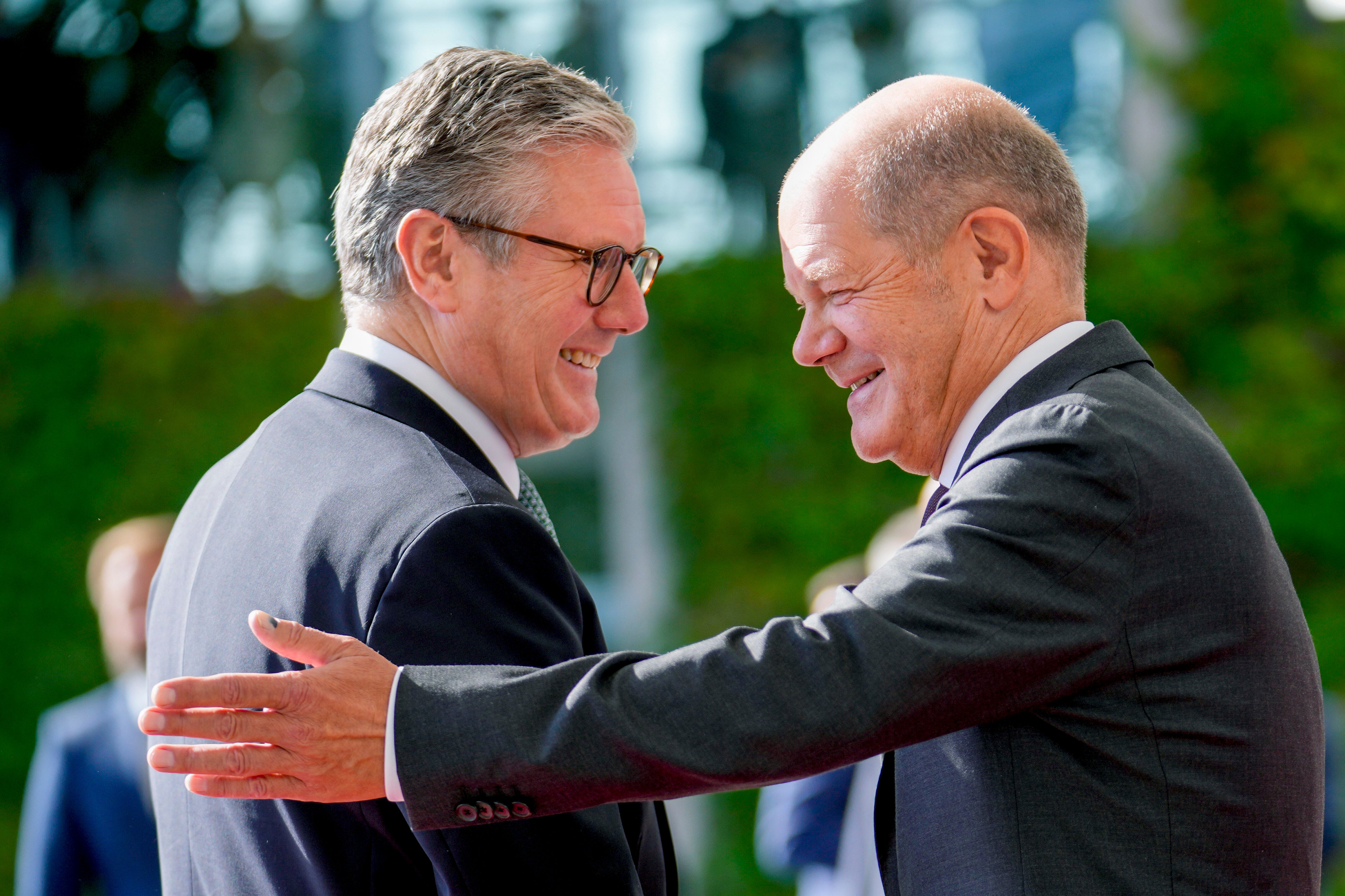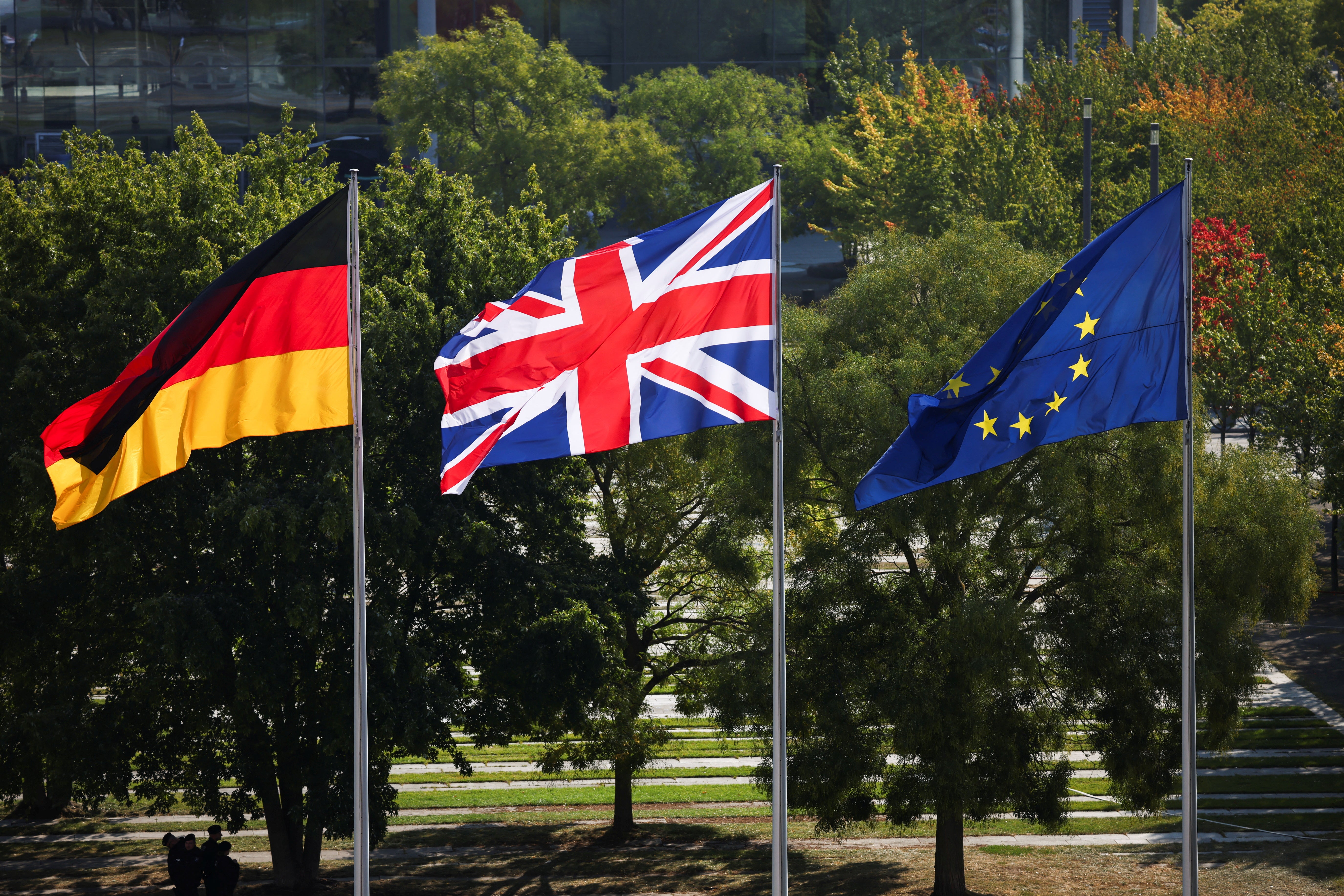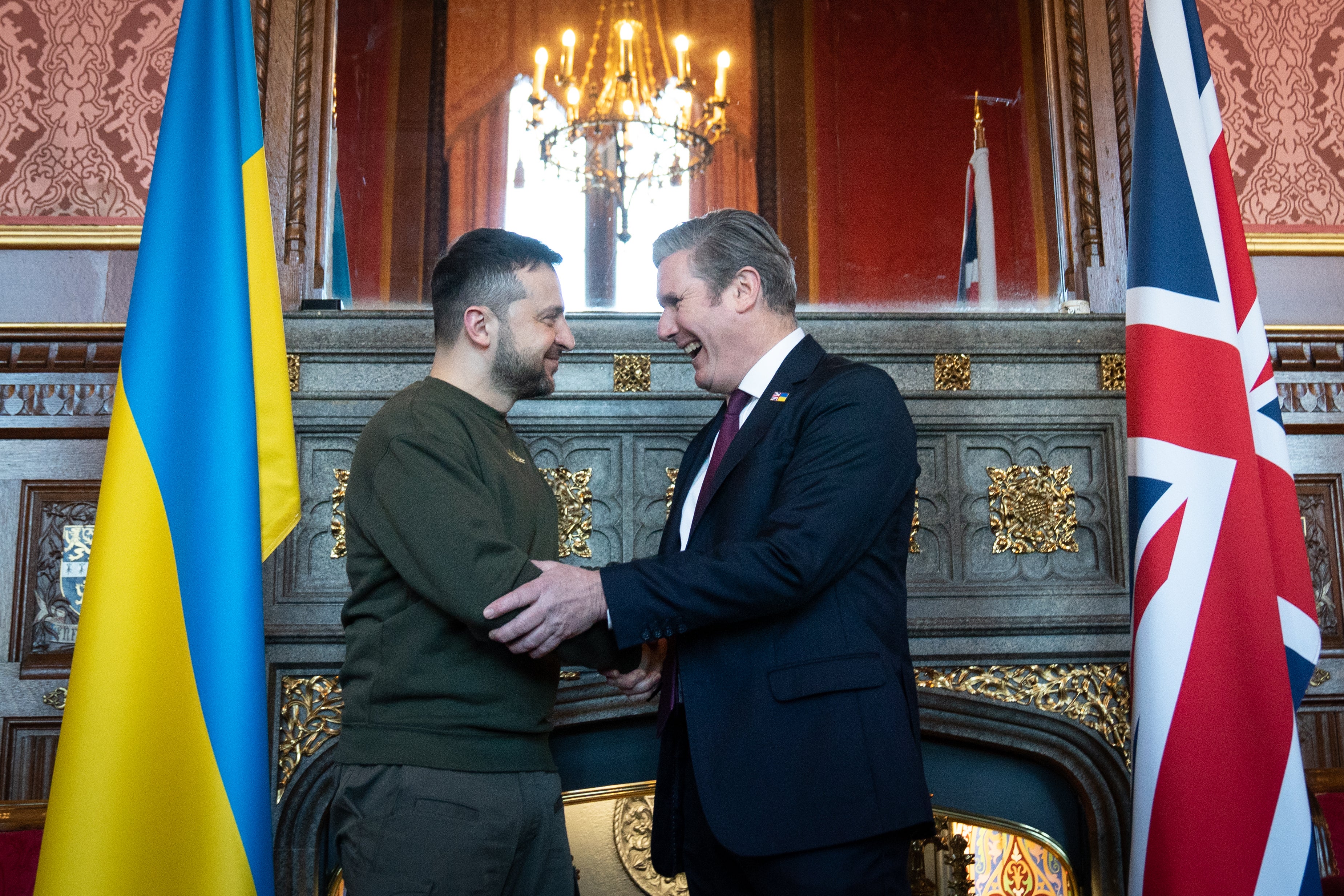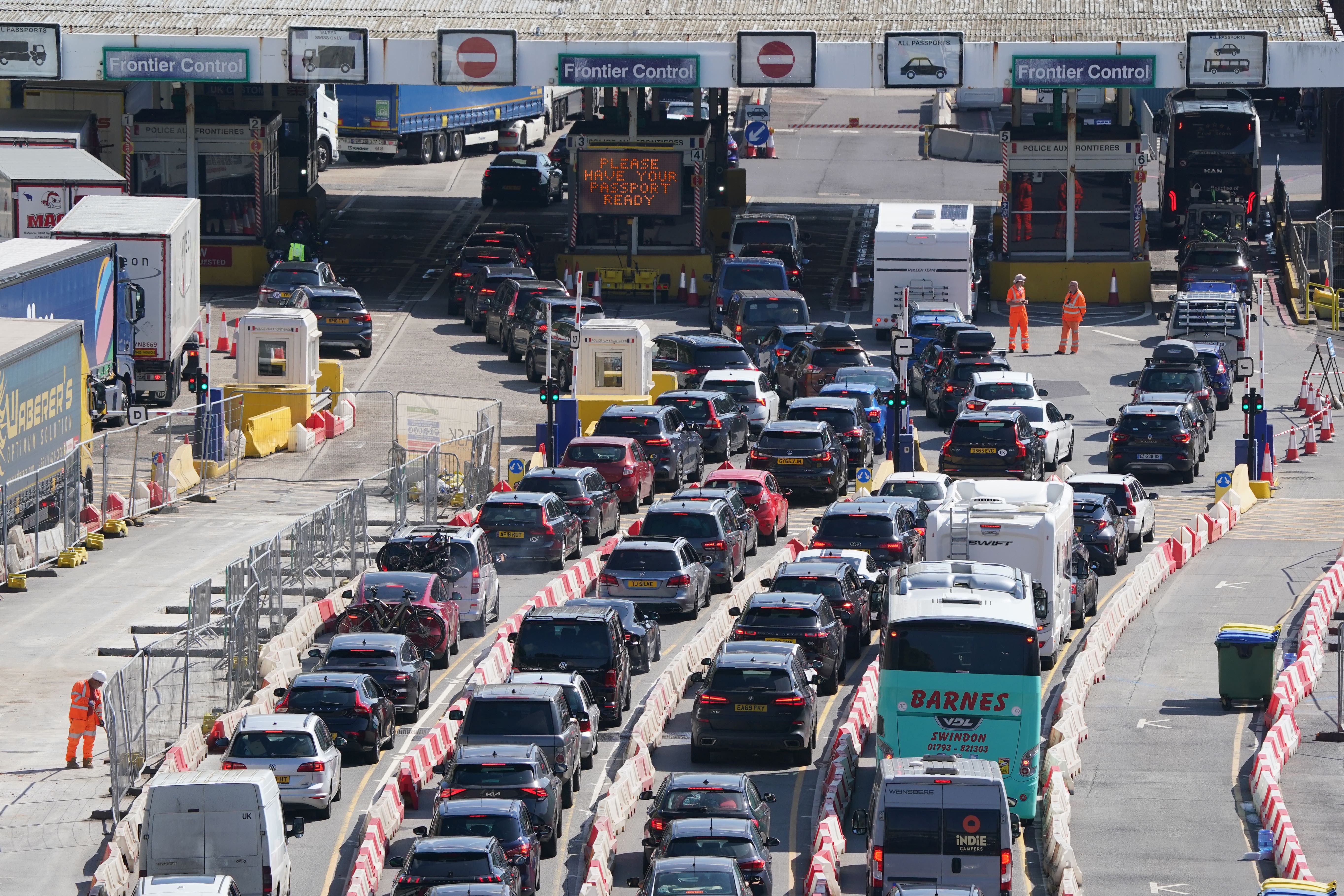Keir Starmer wants to ‘reset’ relationship with Europe – what are the UK’s options?
PM looks to renew UK’s relationship with Germany, but self-imposed red lines leave his options limited

Your support helps us to tell the story
From reproductive rights to climate change to Big Tech, The Independent is on the ground when the story is developing. Whether it's investigating the financials of Elon Musk's pro-Trump PAC or producing our latest documentary, 'The A Word', which shines a light on the American women fighting for reproductive rights, we know how important it is to parse out the facts from the messaging.
At such a critical moment in US history, we need reporters on the ground. Your donation allows us to keep sending journalists to speak to both sides of the story.
The Independent is trusted by Americans across the entire political spectrum. And unlike many other quality news outlets, we choose not to lock Americans out of our reporting and analysis with paywalls. We believe quality journalism should be available to everyone, paid for by those who can afford it.
Your support makes all the difference.Keir Starmer has vowed to “turn a corner on Brexit” and rebuild relationships with EU member states as he visits Germany and meets with chancellor Olaf Scholz today.
Touching down in Berlin, the prime minister says he wants to fix “broken relationships” left by the previous governments, and strike new deals with European neighbours.
The prime minister will add: “we have a once in a generation opportunity to reset our relationship with Europe.”
Details of the deal UK negotiators are looking to strike with German officials have not been shared, but No 10 indicates that the trip will kick of talks that are expected to go on for the next six months.

They add it will cover “vital areas for increased collaboration,” including better market access, clean energy, and defence. It will sit alongside the UK’s longstanding treaties with France.
Sir Keir’s approach represents a departure from the previous government, which remained less open to the prospect of greater collaboration with the EU.
The new prime minister has said he respects the results of the 2016 Brexit referendum, but notably campaigned for the UK to remain in the European Union, and acted as shadow Brexit minister under previous Labour leader Jeremy Corbyn from 2016 to 2020.
Here are some of the options Sir Keir might be looking at as he heads to Berlin:
Defence agreement
No 10 says the UK-German talks will build on a defence agreement which is already being negotiated. In July, the two countries released a joint statementment committing to ‘enhanced bilateral defence cooperation’ in light of the Russian invasion of Ukraine.

The talks commencing in Berlin will likely reaffirm these pledges, with negotations beginning on a bilateral treaty model modelled on the UK’s deal with France. These were the 50-year Lancaster House Treaties, that were ratified by then-prime minister David Cameron in 2010.
As part of the trip, Sir Keir will also meet Armin Theodor Papperger, the chief executive of Germany’s largest defence and security company, Rheinmetall. The company has several defence contracts with the UK, with work described by No 10 as “vital to the modernisation of the British Army.”
Border security deal
Sir Keir is also looking to “increase joint action” on illegal migration during his visit to Germany. No 10 specifies that this will include furthering intelligence sharing to intercept and shut down organised immigration crime rings.
Tackling illegal immigration was one of the prime ministers key pledges before the general election, with a key focus on combatting criminal gangs which exacerbate the issue.
He is likely to find an ally in Mr Scholz, who last week reaffirmed his position that irregualar migration to Germany “must go down” after three were killed in an attack by an asylum seeker in the town of Solingen last week. Sir Keir says he will also use his trip to pay condolences to the German people.
Priority for British business
The prime minister is also reportedly looking to secure preferential access for British businesses to the German market during his visit to the country. This would include tackling trading barriers like certifications, tender information and German laws, a source told The Times.

Sir Keir will say in Germany that he believes “boosting economic growth” both in Europe and the UK is a crucial mission, with ‘market access’ also listed as a talking point. No 10 points out that Germany is the UK’s second-largest trading partner, accounting for 8.5 percent of all UK trade.
Youth mobility scheme
As the prime minister looks to improve UK-EU relations, many have speculated that the groundwork could be laid for a scheme which would allow young people to live and work in EU nations.
However, ministers have ruled out the possibility. Sir Keir joined then-prime minister Rishi Sunak in April to reject a formal offer from the EU to negotatiate a bloc-wide mobility scheme, with government sources reiterating his opposal in August.
“We are not considering it, there are no plans for this, or any work being done on it,” a government spokesperson said. “Our negotiating team has very clear red lines, and none of the preparatory work involves this.”
It’s thought this could cause some disagreement during negotiations in Berlin, as German officials are reportedly looking to push the UK to take up such a deal in return for lucrative new trade agreements.
Join our commenting forum
Join thought-provoking conversations, follow other Independent readers and see their replies
Comments